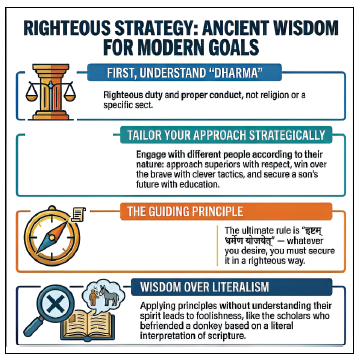“Gratitude turns what we have into enough.”
– Anonymous
Gratitude is one of the most powerful yet underrated emotions a human being can feel. It is the ability to recognize and appreciate the good in our lives—be it something as grand as achieving a lifelong dream or as simple as a smile from a stranger. Often, in our busy routines, we forget to pause and notice the blessings around us. Gratitude is not merely a polite “thank you”; it is a deep awareness that we already have reasons to be content and joyful.
Human nature tends to focus on problems, shortcomings, and unmet desires. We measure our happiness against what we lack rather than what we have. This mindset often leads to dissatisfaction and stress. Gratitude helps us break this cycle by changing the way we look at life.
When we consciously choose to notice the good—whether it’s good health, a supportive family, or a simple act of kindness—it shifts our mental state from scarcity to abundance. This is why Oprah Winfrey famously said, “Be thankful for what you have; you’ll end up having more.” By focusing on blessings instead of burdens, we create space for peace and happiness to grow.
“It’s not happiness that makes us grateful, it’s gratitude that makes us happy.” – David Steindl-Rast
Gratitude is not just personal—it is social. When we express appreciation to people around us, we strengthen relationships. Think about it: when someone sincerely thanks you for something, you feel valued and motivated to do more.
In families, gratitude nurtures love and understanding. In friendships, it builds trust and loyalty. In workplaces, it boosts morale and teamwork. Even small gestures—like telling a colleague “I appreciate your help” or sending a message to a friend saying “I’m glad you’re in my life”—can create deep connections. Gratitude acts like glue that holds relationships together.
“A moment of gratitude makes a difference in your attitude.” – Bruce Wilkinson
Gratitude is not just an emotional concept; it is scientifically proven to be beneficial for both the mind and the body. Studies from leading universities show that practicing gratitude reduces stress and anxiety, improves sleep quality, strengthens immunity, lowers blood pressure & boosts happiness hormones like dopamine and serotonin.
In other words, gratitude is a natural antidepressant with no side effects. It has the ability to rewire our brain to focus more on positive experiences and less on negative ones.
“Gratitude is the healthiest of all human emotions.” – Zig Ziglar
Many people think gratitude comes naturally, but in reality, it must be cultivated. There are several practical ways to make gratitude part of daily life:
- Gratitude Journal: Write down three things you are thankful for each night before bed.
- Morning Reflection: Begin the day by mentally listing blessings, such as good health, shelter, or opportunities.
- Expressing Thanks: Regularly tell people you appreciate them—in person, by message, or through a handwritten note.
- Mindful Moments: Pause during the day to notice small joys—a warm cup of tea, the sound of rain, or a child’s laughter.
When gratitude becomes a habit, it changes not only how we see the world but also how the world responds to us.
“Gratitude is a habit of the heart.” – Alexis de Tocqueville
A year ago, I faced one of the most painful chapters of my life. I lost the most important person to me. Alongside my grief, I had responsibilities piling up, bills to manage, and a family to care for. Every day felt heavy, and I could only see what was going wrong.
One evening, while speaking to an old friend, I shared my worries. She didn’t offer advice; instead, she said, “Rati, every night before you sleep, write down three things you’re grateful for. No matter how small, find them.”
At first, it felt impossible. My initial lists included only basic things like “I have a roof over my head” and “I had a meal today.” But over time, my awareness grew. I began to notice my mother’s soothing voice when she called to check on me, my children’s laughter echoing through the house, the kindness of a neighbour who brought groceries without being asked, and the quiet beauty of a sunrise after a long night.
These little moments became my anchors. My problems didn’t vanish, but my heart felt lighter. I realized that even in grief and uncertainty, there were still gifts in my life worth noticing. That shift in perspective gave me the strength to move forward.
“Gratitude turns pain into acceptance, chaos into order, and confusion into clarity.” – Melody Beattie
It is easy to be grateful when everything is going well. The real power of gratitude is revealed during adversity. When challenges arise, gratitude helps us focus on what remains instead of what is lost. It doesn’t mean ignoring pain – it means choosing to also see the good that coexists with it.
Gratitude, in these moments, becomes a source of resilience. It tells us, “Yes, this is hard, but there is still something here to hold on to.”
“When it rains, look for rainbows. When it’s dark, look for stars.” – Oscar Wilde
Gratitude is not just a reaction to receiving something – it is a way of living. It costs nothing, yet it enriches every aspect of our lives. It makes us more present, more content, and more connected to others.
To me, gratitude is like the sunrise after a long, dark night—a gentle whisper that says, “Look, there is still light.” When we embrace gratitude daily, we do not just change how we feel; we change how we live. And that is the true power of gratitude.
“Gratitude is the fairest blossom which springs from the soul.” – Henry Ward Beecher.





















